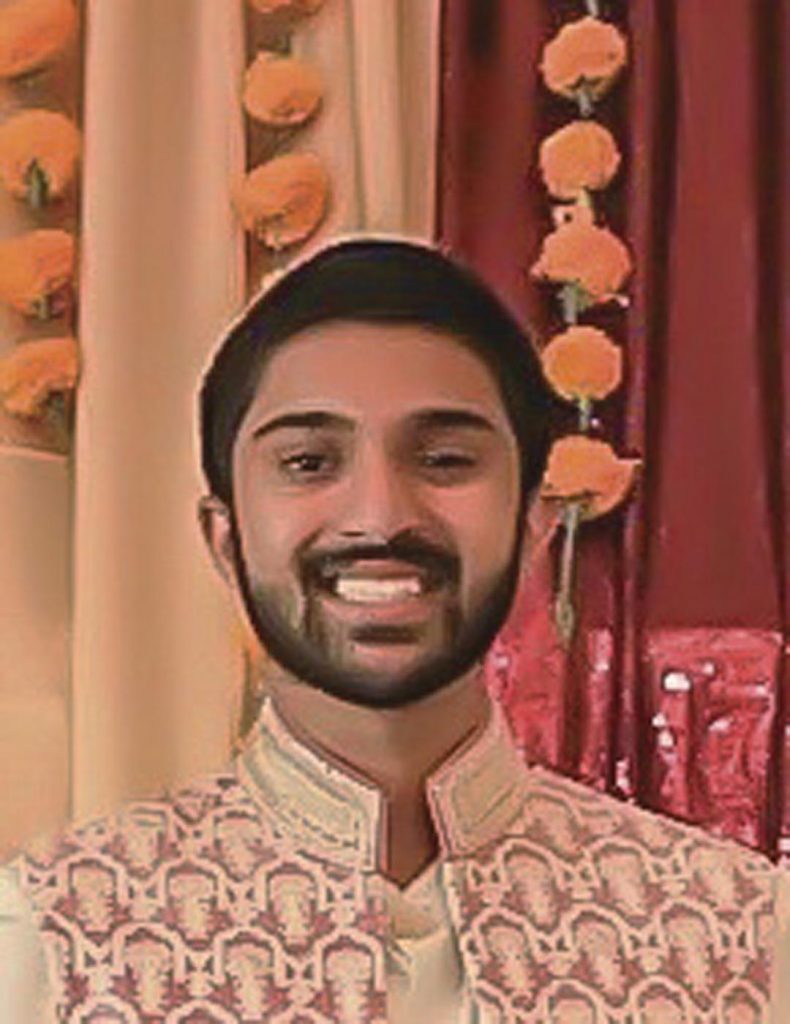How peer discussions strengthened and made me a calm defender of my faith
Marut Yelagalawadi
By the beginning of the fall, 2022, semester, approximately 20 million high school graduates will be taking classes at US institutes of higher learning. A small but significant portion of these freshmen university students will identify as Hindus. However, since the turn of the 20th century, many of these state and private universities abandoned religious aspects of education and became more secularized, continuing the trend of secularization throughout American society and the Western world at large. As these young men and women begin their academic journey, it is clear that some will face a dilemma: maintaining their identity and being outcasts, or denouncing their identities to fit in.
I am one of these students who has faced such a dilemma, between fitting in with the university social environment and being a practicing Hindu, and I have found that such a dilemma need not be faced. If anything, practicing my Hindu heritage and its core tenets—such as the belief in pursuing knowledge—has helped me become a far more studious and hardworking individual in my college years. It has helped me maintain my philosophical beliefs while befriending students of different religious backgrounds. With American society being secular and friendly to people of all religious backgrounds (and even to those with no religious backgrounds), I have connected with American Hindus and engaged in interfaith dialogue.
Yet, the issue of being a practicing Hindu on US campuses remains. I recall a philosophy class discussion on the concept of God and religion that examined the relationship between an individual and his or her God. Many students shared ideas in the framework of Judeo-Christian theologies, with some bringing up Islamic and Buddhist tenets. Fascinated with the discussion and excited to share my analysis, I explained some of the basic tenets of Hinduism, from Sanatana Dharma to moksha. To my dismay, the responses were not quite reciprocal, and most of my analysis was discarded.
It could have been my enthusiasm was off-putting, or that the online Zoom setting depressed the reciprocation of my enthusiasm. Perhaps it was the subject matter I broached. While I gave my peers the benefit of the doubt, the event made me think of similar discussions and made me realize that Hinduism may not be understood or appreciated as much as it ought to be.
Outside of class, I have often spoken with many friends about Hinduism and related concepts. Two common trends stand out to me. The first is that many non-Hindu college students do not seem to know anything about Hinduism, or are accustomed to accept what they learn through social media. For instance, in one discussion during a project on the relationship between religion and politics in a political theory class, a peer asked if Hinduism “has anything to do with yoga and meditation.” Later, he asked if simply sitting down cross-legged and chanting “Om” three times makes someone a Hindu. During a discussion in philosophy class, the lecturer pointed out the “polytheistic elements in Hinduism” that separate it from the monotheistic, Semitic religions. Rather than becoming disturbed, I simply chalked up these instances to misinformation or half-truths that lead to ignorance toward Hinduism. I have always found it enjoyable to discuss my faith and heritage with those who wish to understand it. If anything, these fruitful discussions have taught me more about my own faith, as complex and unique as it is.
The second trend is about irrational, unfounded bigotry as much as it is about misunderstanding—and this goes beyond one’s college years. As the secularization of institutions ramps up in the Western world in the 21st century, it seems that some antitheistic individuals use university platforms to stoke fear and hate against those of religious backgrounds, which has in recent years included American Hindus. Despite Hinduism’s being a worldwide faith shared by people of different ethnicities and nationalities, it is often conflated with the Republic of India and the current geopolitical situation in the Indian subcontinent. The terms Hindutva and Hindu nationalism are being thrown around in American universities, despite their having nothing to do with religions or politics in America. I distinctly recall one person characterizing Hindus as Nazis because of our use of the swastika—a symbol meant for peace that was and is unjustly used by truly deplorable white supremacist organizations.
It has become increasingly exhausting explaining to some non-Hindu peers that simply because I am a Hindu does not mean I have ties with India or the geopolitical situation in the Indian subcontinent, especially as it refers to complicated issues such as the Kashmir conflict. Explaining to these individuals that I am an American Hindu, born and brought up in the United States, falls on deaf ears. Unfortunately, it has become difficult for me to even try to change their view. But alas, it is something I will continue to do.
As when facing all forms of bigotry, it is important to continuously defend your heritage, but without engaging in altercation, to speak softly but be strong about your convictions. While I have not changed the minds of those who are against me based on my heritage, my words have been heard. Engaging in sincere discussion about Hindu heritage, I believe, helps ensure that fewer people become Hinduphobic and more people better understand what it means to be Hindu.
Anti-Hindu sentiment is not foreign to American universities or the United States at large, nor is it foreign anywhere else. Wherever there is ignorance, a culture of fear evolves into a culture of hate.
It is up to us American Hindus to not engage in more conflict,
but to engage in valuable dialogue with those who do not understand Sanatana Dharma. It is important to shed light where there is darkness, and participate in meaningful discussions so that such ignorance is removed.

About the Author
Marut Yelagalawadi is an American Hindu residing in the San Francisco Bay Area. While involved in various Hindu cultural organizations, he is currently completing his undergraduate degree in Political Science.
E-mail: marutyelagalawadi@gmail.com.

Pingback: Today at Kauai's Hindu Monastery
Hi
Nice article. Thanks 🙏🏾
One observation you made: “ explaining to some non-Hindu peers that simply because I am a Hindu does not mean I have ties with India or the geopolitical situation in the Indian subcontinent, especially as it refers to complicated issues such as the Kashmir conflict. Explaining to these individuals that I am an American Hindu, born and brought up in the United States, falls on deaf ears. Unfortunately, it has become difficult for me to even try to change their view. But alas, it is something I will continue to do.”
Indeed it’s exhausting. Here’s my experience.
I am a born Hindu Indian, have ties with India (family there). Over in the USA for >30 years.
When I criticize practices in the USA such as corruption or racism, I am often asked what I think of indias corruption or caste system.
My answer is two parts: I am an American citizen paying taxes and can criticize USA without having to simultaneously explain my opinion of any other country’s polices or, is it because I am brown, this additional burden is placed on me?
Second, if you are curious about my opinion in Indian situation, I need thirty minutes to explain the context and thirty mins for my nuanced/non-trivial opinion.
Let me know if you have time.
Then I will add : additionally, I can similarly provide option South Africa or the uk. Let me know.
Often people get the poutine their biases. They back off or start talking about weather.
Thanks for your courage.